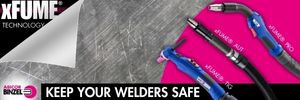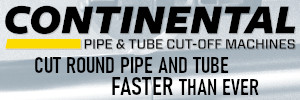Automotive Tooling Indicators Point to a Strong 2018
Mold and die shops should stay strong through this year, with a potential return to more normal sourcing levels in the near future.
Posted: April 10, 2018
The Original Equipment Suppliers Association (OESA; Southfield, MI) and Harbour Results, Inc. (HRI; Southfield, MI) recently released the results of their Q1 2018 Automotive Tooling Barometer, which show that the tooling industry is looking strong throughout 2018 with key indicators – sentiment, back logs and utilization – all positive. “Although we believe 2018 will be a strong sourcing year for the automotive tooling market, we are seeing some indications of a return to more normal sourcing levels in the near future,” said Laurie Harbour, the president and chief executive officer of HRI. “Automakers are continuously making product changes in response to market forces, which makes this industry difficult to predict. It is important that shops stay vigilant, monitor industry data and be prepared to make quick decisions to stay profitable.”
Sentiment also remains strong (80 percent) with a slight increase over Q4 2017. Additionally, the cyclical nature of work on hold continues as it jumps to 11 percent (from 8.4 percent); however, the overall downward trend continues and is expected to remain relatively flat throughout the remainder of the year.
Over the past 12 months, both die and mold shops have experienced strong capacity utilization (90 percent and 81 percent respectively). However, average throughput (a sign of efficiency which is strongly correlated to profitability) shows die shops are experiencing slightly higher efficiency levels than mold shops. According to Harbour, levels of efficiency are all over the map, independent of shop size, with some of the best being larger than $40 million as well as smaller than $5 million. This is likely the result of how busy a shop is as well as their commitment to improve operations, making them profitable regardless of market forces.
For the first time, the study looked at die and mold shop liquidity and the data shows that a shop’s liquidity is linked directly to payment terms and accounts receivable (AR) paid on time. The trend for both of these factors continues to trend down, with progressive payments terms dropping from 55 percent in Q4 2017 to 51 percent in Q1 2018, while AR paid on time dipped one percentage point during the same time frame.
“We feel the reason these two factors continue to trend down is twofold,” explained Harbour. “First, the industry is starting to normalize, with supply out pacing demand. Second, the industry is coming off an unprecedented 18-months of tool spend – nearly $15 billion in tools – which has cash tight across the automakers and Tier 1 suppliers. If payment terms and AR paid on time continue to decrease, this adds risk the tool and die industry. Additionally, if there is a small dip in the automotive market it could put many shops – particularly the small shops – in a challenging financial situation.”
“We and Harbour Results are committed to understanding and sharing the sentiments of automotive tool manufacturers,” added Julie A. Fream, the president and chief executive officer of OESA. “It is through cooperative industry collaboration, such as this Automotive Tooling Barometer, that we are able to determine the key indicators for the industry.
The survey population was comprised of mold shops (69 percent), die shops (18 percent) and other (14 percent), in the U.S. (56 percent), Canada (37 percent), Europe (five percent) and Asia (two percent). Shops with revenue ranges less than $5 million up to greater than $40 million were represented, with the largest percentage of shops coming from the $5-10 million (25 percent) range.
harbourresults.com, www.oesa.org










